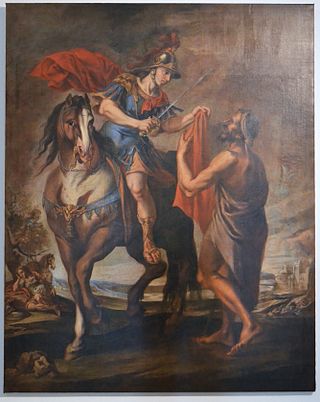Brian Kennedy may refer to:
Michael, Mike or Mick Kelly may refer to:
Doyle is a surname of Irish origin. The name is a back-formation from O'Doyle, which is an Anglicisation of the Irish Ó Dubhghaill, meaning "descendant of Dubhghall". There is another possible etymology: the Anglo-Norman surname D'Oyley with agglutination of the French article de. It means 'from Ouilly', the name of a knight who originated from one of the places named Ouilly in Normandy, such as Ouilly-le-Tesson, Ouilly-le-Vicomte, etc. The relationship with the family D'Oyly is unknown.
John O'Brien may refer to:
Michael or Mike Bradley may refer to:
Naughton is an Irish Gaelic surname derived from the name Ó Neachtain meaning 'descendant of Nechtan'. A Sept of the Dal gCais of the same stock as Quinn and Hartigan where located in Inchiquin Barony, County Clare.
Delaney is an Irish surname derived from the Gaelic Ó Dubhshláine, Dubh meaning black and Sláine for the River Sláine (Slaney). DeLaney is also of Norman origin. There is a branch of Dulaneys in the United States who trace back to a Thomas Delany. Thomas's son, Daniel, claimed to have been descended from Dr. Gideon Delaune, a Huguenot physician and theologian and founder of the Apothecaries' Hall. Hence, there are multiple discussions among genealogical circles as to the origin of Delaney since it can be anglicised Gaelic or anglicised French.

Brian is a male given name of Irish and Breton origin, as well as a surname of Occitan origin. It is common in the English-speaking world.
Doherty is an Irish surname. It is anglicized of the Gaelic Ó Dochartaigh.
The surname Collins has a variety of likely origins in Britain and Ireland:
The English-language surname Healy is in use by three separate ancestral lines of people from Ireland.
Michael Kennedy may refer to:
Gibson is a surname of Scottish or Norman origin. It is an anglicized form the Gaelic Mac Gibealláin and can be a sept of Clan Campbell, Clan Buchanan or Clan MacMillan. In Ireland Gibson is an anglicized form of the Irish Gaelic Ó Gibealláin.
King is an English surname. It is also an Anglicized form of the German surname Küng, which in many German dialects is pronounced like king. This originally German form is widespread among American Mennonites and Amish.
Gleeson is an Irish surname. It is an anglicisation of the Irish name Ó Glasáin or Ó Gliasáin. The name is most common in County Tipperary but originates in East County Cork, in the once powerful Uí Liatháin kingdom, where the Gleesons were great lords and sometimes kings. Notable people with the surname include:

Burke is a Norman-Irish surname, deriving from the ancient Anglo-Norman and Hiberno-Norman noble dynasty, the House of Burgh. In Ireland, the descendants of William de Burgh had the surname de Burgh, which was gaelicised in Irish as de Búrca and over the centuries became Búrc, then Burke, and Bourke.

Martin may either be a given name or surname. In Scotland, Martin or McMartin is a common surname of Scottish Gaelic origin. Martin is, however, more common as a masculine given name in many languages and cultures. It comes from the Latin name Martinus, which is a late derived form of the name of the Roman god Mars, protective godhead of the Latins and, therefore, god of war. The meaning is usually rendered in reference to the god as "of Mars", or "of war/warlike" ("martial").
English is an English surname. Notable people with the surname include:
Declan is an Irish given name, an anglicised form of the Irish saint name Declán, also Deaglán or Déaglán. St. Declán founded a monastery in Ireland in the 5th century, and the St. Declán's stone has been credited as the site of many miracles. The name is believed to mean "man of prayer" or "full of goodness".
Quinn is an Anglicised form of the Irish Ó Coinn or Mac Cuinn. The latter surname means "descendant of Conn". The surname Quinn is also rendered Ó Cuinn or Mac Cuinn in Irish. The surname is borne by several unrelated families in Ireland, especially in the northern province of Ulster and also the counties of Clare, Longford, and Mayo. The most notable family of the name are that of Thomond, a Dalcassian sept, who derive their surname from Niall Ó Cuinn who was slain at the Battle of Clontarf in 1014. This family was formerly represented by the Earls of Dunraven. Another family is that seated in Annaly, who were related to the O'Farrell lords of Longford. Another Quinn family was seated at An Chraobh, County Tyrone and they were related to the O'Neill Kings of Tír Eoghain and for whom they acted as Hereditary Quartermasters. Other families include one seated in Antrim; one seated in Raphoe; and one called Clann Cuain, seated near Castlebar. In the seventeenth century, the surname Quinn was common in Waterford. In 1890, the surname was numerous in Dublin, Tyrone, Antrim, and Roscommon. Quinn is one of the twenty most common surnames in Ireland. It is sometimes said that the surname Quinn is borne by Catholics whilst Quin is borne by Protestants.
The initials P. J. are used by several noted people. This is often an abbreviation for their first and middle names, but can also be used when their first name starts with P, and the 'J' stands for Junior suffix, or can even be the legal first name. As it is often an abbreviation, it has no actual meaning.